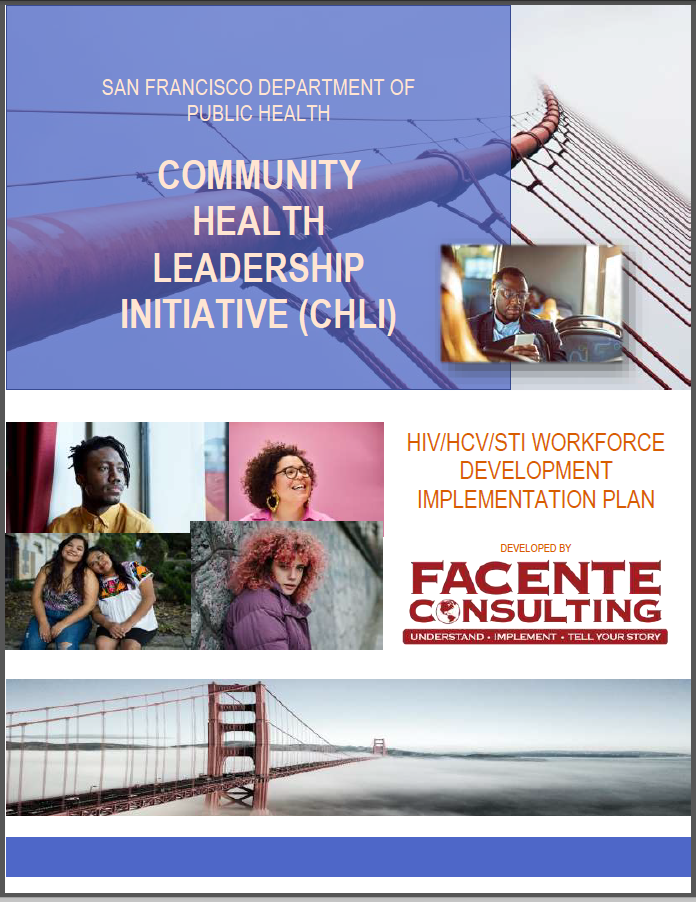Prior to this project, a collaborative of stakeholders across San Francisco was charged with planning and implementing strategies to end the HIV, hepatitis C, and sexually transmitted infection epidemics in the city. The priority strategy they identified was “to build a highly skilled workforce, cross-trained in HIV, HCV, and STIs, that reflects the populations served, has low turnover rates, and is valued and supported.” The San Francisco Department of Public Health hired Facente Consulting to conduct formative research to determine the best methods for implementing this strategy between 2020 and 2025.
Facente Consulting conducted a literature review and key informant interviews to assess the landscape of existing workforce development efforts and identify needs and gaps. We determined that in order to establish a solid next-generation workforce, three things are needed: (1) better jobs, with better pay and more voice for workers, (2) equitable access to professional networks and mentors, training, advancement opportunities, and much more, and (3) support services that help eliminate barriers to long-term successful employment, such as housing assistance, childcare, and behavioral health services. With this foundation, the Community Health Leadership Initiative (CHLI – pronounced “chili”) began to take shape. One component of CHLI involved assembling existing trainings and other opportunities into a more packaged curriculum, and piloting a small cohort to engage in trainings with the support of mentors. Another component focused on developing standards for employers to promote anti-racist, inclusive work environments conducive to supporting workers with lived experience. Additional components to CHLI are anticipated to roll out in the future (without Facente Consulting’s involvement), with the goal of CHLI becoming a robust “hub” of resources to set up the next generation of leaders in the HIV/HCV/STI field for success.
